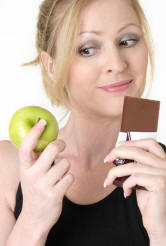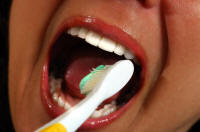Fixed appliances (also known as braces, train tracks, tram tracks and tin grin) are the most common and versatile device used by orthodontists. There are hundreds of different bracket dsesigns manufactured around the world which means your brace might not look the same as your friend’s.
Basically a fixed brace is made of attachments (brackets and bands) which are glued to the teeth and one or more wires which attach to the brackets. The bending of the wires or use of elastics creates the force to move your teeth. North Sydney Orthodontics offer a choice of standard mini brackets, clear (ICE) brackets and low friction self ligating brackets. There are advantages for each design and we will advise you of the most appropriate choice.
Things to expect when first wearing fixed braces
When braces are first placed the teeth are sometimes a little tender for a few days. Any discomfort is usually controllable with non- prescription pain killing tablets (but don’t exceed the correct dose). If you are experiencing significant pain you should seek a prompt appointment with the orthodontist. The lips, cheeks and tongue may also become irritated for a couple of weeks as they toughen and become accustomed to the surface of the braces. You can put wax on the braces to lessen this. We’ll show you how!
Food glorious food – what not to eat

Braces are quite easily broken, because they are designed to be easily removed at the end of treatment without damaging the teeth. To keep the braces working at their best and keep your treatment moving you must take extra care to avoid breaking the brackets or bending the wires. Chewing on hard things (for example, pens, pencils or fingernails) can damage the braces. Damaged braces will cause treatment to take longer and persistent breakages may incur additional charges.
So try to avoid:
Chewy foods: bagels, hard rolls, liquorice Sticky foods: caramels, gum
Hard foods: nuts, lollies
Crunchy foods: caramel popcorn, ice, chips
tough meats, hard breads, and raw vegetables.
Foods you have to bite into: corn on the cob, apples, carrots
We’re not against healthy eating so if you want to eat crunchy carrots or apples – cut them up into small pieces first and pass them straight to the back teeth for chewing up
Keeping things clean and healthy while wearing braces
When you are wearing braces food and sugary liquids will persist in the mouth much longer than normal because food debris gets caught around the brackets and under the wires. This can promote rapid bacterial plaque growth on the teeth surfaces, which causes gum disease and tooth decay. To avoid these problems you should always clean your teeth carefully after eating – even at school or work , so take your toothbrush with you wherever you go and brush with a fluoride tooth paste. We recommend the use of fluoride mouthrinse to help protect your teeth while braces are in place and to apply GC Tooth Mousse at nights (after brushing) to protect your teeth against ‘decalcification’ marking. Adults who have a history of gum disease should also see a periodontist during orthodontic treatment and definitely quit smoking.
Acidic food and drink (eg fizzy drinks, diet fizzy drinks, fruit juices, dry wine), can damage the teeth so if you are thirsty try milk (not milk shake), water, tea or coffee without sugar, diluted fruit juice is usually OK if you rinse out your mouth with water afterwards.
What happens if I break my braces?
Don’t be alarmed if a wire or band comes loose. This happens occasionally. If wire protrudes and is irritating, use a blunt instrument (back of spoon or the eraser end of a pencil) and carefully, push the irritating wire under the bracket if possible. Simply get it out of the way. If irritation to the lips or mouth continues, place wax or wet cotton on the wire to reduce the annoyance. Call our office as soon as possible for an appointment to check and repair the appliances.If any piece comes off, save it and bring it with you to the office.
Braces and Sports
A protective mouthguard is advised for playing contact sports. In case of any accident involving the face, check your mouth and the appliances immediately. If teeth are loosened or the appliances damaged, phone at once for an appointment. In the meantime, treat your discomfort as you would treat any general soreness

